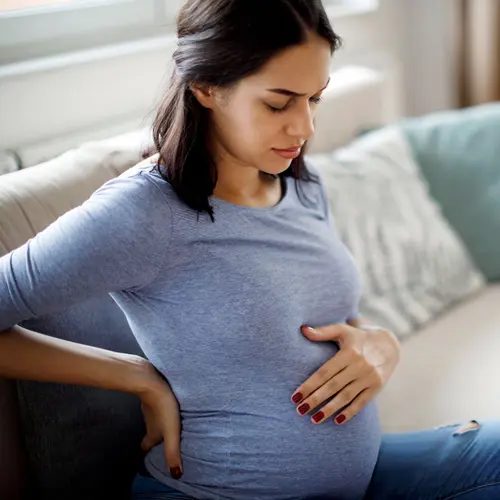A lot happens to your body after you have a baby, including changing levels of hormones. For many women, the change in hormones can cause postpartum night sweats. Even though postpartum night sweats are common, they can be uncomfortable and make it difficult to have a restful night’s sleep. Learn more about the causes of postpartum night sweats, other symptoms, steps you can take, and when to talk to a doctor.
What Causes Postpartum Night Sweats?
Night sweats are often a symptom of menopause and are among the vasomotor symptoms (VMS) which women can experience. Similarly, postpartum night sweats are also often caused by decreased levels of estrogen and progesterone hormones. Your body needs high levels of these hormones during pregnancy but doesn’t need as much after giving birth.
It usually takes a few weeks after having a baby for these levels to reset to their pre-pregnancy levels. These changes affect your body temperature at night and make you sweat.
When to See a Doctor
Most of the time, postpartum night sweats are caused by changing hormones and will go away on their own. However, if you have a fever and chills, or you experience other unexplained symptoms such as weight loss, you should see a doctor as it could be a sign of another underlying condition. Other conditions that have night sweats as symptoms include:
- Hyperthyroidism
- Postpartum thyroiditis
- Anxiety
- Infection
- Diabetes
- Hypoglycemia
Some food and drinks can also cause you to sweat at night. These include spicy foods and coffee. Spicy foods and coffee can cause your body temperature to spike, which can cause sweating. It might be especially worse if you eat them before bed.
Signs of Postpartum Sweats
You can easily tell if you’re having postpartum night sweats. The most obvious symptom is that you’re sweaty at night while you sleep. You may also experience:
- Strong body odor
- Waking up a lot
- Feeling soaked or drenched
- Irritability
- Tiredness
Treatment for Postpartum Night Sweats
Night sweats can make it hard to sleep, which can make you feel more tired, stressed, and emotional.
Postpartum night sweats will usually clear up on their own. As your hormones get back to normal levels, your body temperature will too. In the meantime, there are some things you can do that can help. You can:
- Sleep on a towel to absorb some of the sweat
- Use lightweight or moisture-wicking bed sheets
- Sleep in your underwear or in lightweight clothes
- Turn down the temperature in your bedroom
- Drink less coffee, especially at night
- Eat less spicy food
- Drink cold water before bed
- Use relaxation methods before sleep
- Cool your body with a cold cloth
- Use a ceiling fan or portable fan
- Turn on the air conditioning at night
Make sure it’s not an infection. If your night sweats come with chills and a fever, your doctor needs to know as this could be an infection. They may need to do some tests and conduct a physical examination to make sure you don’t have an infection. They might give you antibiotic medicine to help.
Check your other conditions. If you have diabetes or a thyroid condition, your doctor might also want to check your blood sugar levels and your thyroid hormone levels. They might need to make adjustments to your medicine to make you feel better. Sometimes the medication you take can also cause night sweats and these might need to be changed.
Ask for help with anxiety or emotional problems. Most of the time, postpartum sweats will go away on their own once your hormones get back to normal. If you have a lot of trouble sleeping or are having anxiety and other emotional problems, your doctor might be able to give you some medicine that can help.
Natural remedies might not be safe. Sometimes women want to take natural remedies to help their hormones get back to normal. While some might be helpful, they’re not always safe during breastfeeding. Make sure you talk to your doctor or midwife before taking any supplements.
Be patient. If you are dealing with postpartum night sweats, try to be patient with your body. These are usually a sign of your changing hormones and they will get better with time. Try to rest, eat a healthy diet, and stay hydrated by drinking plenty of water. If you are struggling, make sure to talk to your doctor for help.


